The Mother of All Fears
Navigating pregnancy, OCD, and a near-loss during a global pandemic.
Escrito por Jenn Shenouda-Levine
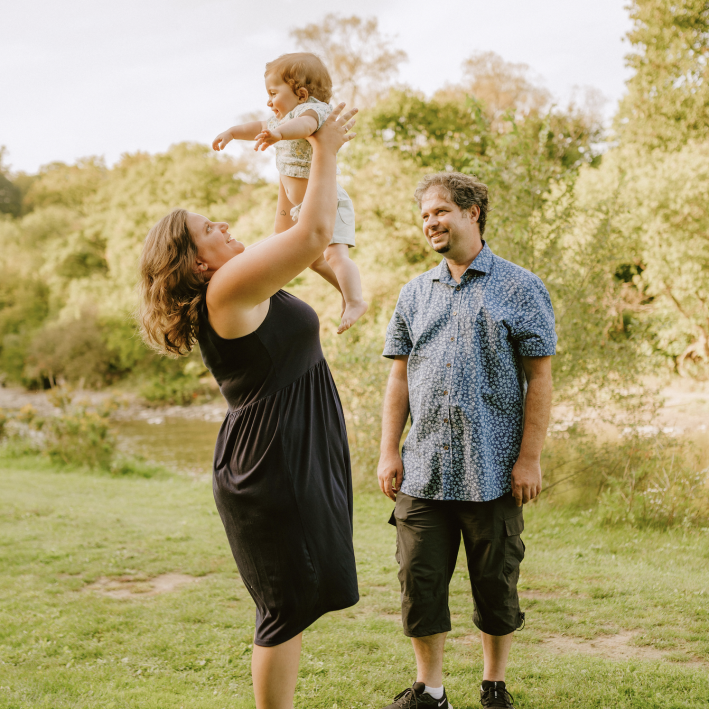
01 Jenn struggled with OCD during her first pregnancy.
02 When her daughter was born, medical issues kept them in the NICU for a few weeks.
03 Once they were discharged, Jenn’s OCD flared up again, while she also dealt with the aftermath of a traumatic birth.
04 Thankfully, she had a good support system, and she now advocates for better mental health support for mothers.
I found out that I was pregnant right around the time the pandemic first hit North America. In those earlier days, everyone thought that the shutdown would only last two weeks. I’ll always remember that period of time where I was balancing the uncertainty of a pandemic with the joy of becoming a new mother.
During my pregnancy, I told myself that if I recited a certain hymn in my head repeatedly, it would prevent anything bad from happening to me and my unborn child. It didn’t matter that I wasn’t religious — I had to recite it from start to finish without messing up the words. I knew this didn’t make any sense, but it still felt like insurance against the unknown. The fear wasn’t always specifically related to Covid-19, but the ever-developing news added an extra layer of panic to the already unpredictable nature of pregnancy.
As someone who has been diagnosed with obsessive compulsive disorder, l knew where my compulsions were stemming from, despite my inability to stop them. I also told myself that my OCD was still largely under my control, which was a stretch.
But at the time, I reasoned, “What kind of expectant mother wouldn’t worry a bit about safety during a global pandemic that changed almost everything familiar with the world? A year of mass political and social unrest? A year where many of us were separated from the support of our families and communities?”
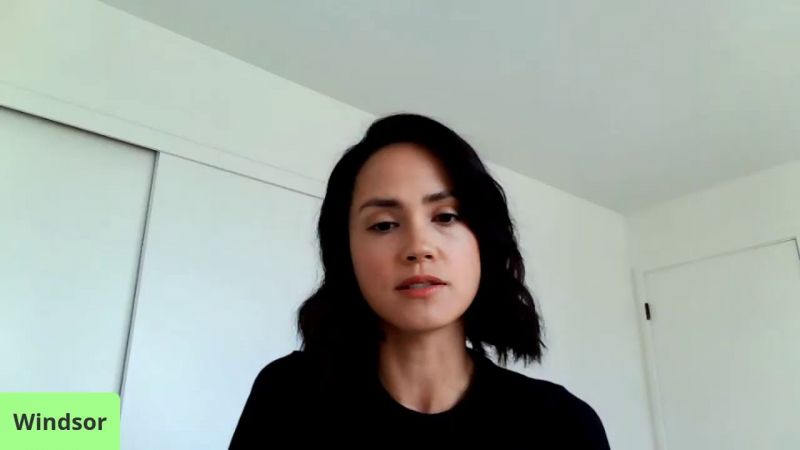
What is Postpartum OCD?
On a rational level, I knew how lucky I was to have access to healthcare and the ability to work from home, but OCD doesn’t barter with rational thoughts. Every time that I felt triggered by fear of the unknown, I ramped up my compulsions.
It seemed to be working for a while, if only for momentary bits of relief. Then, the unimaginable happened.
In late September 2020, after a healthy and mostly uneventful pregnancy, my daughter was born with suspected sepsis — a blood infection. Since I was running a fever from my epidural, she was tested for COVID and it was quickly ruled out. While I was happy about that, she was still extremely sick without reason. Every healthy growth scan and checkup that I had leading up to her birth now seemed to be tossed out the window. Instead of holding my daughter during the first couple of minutes of her life, she was wheeled away to be stabilized while I was left to be stitched up.
Meanwhile, my husband paced back and forth between the hospital’s NICU and my own bed, feeling incredibly helpless. Due to the pandemic, he was the only other person besides our medical team that could be present at her birth. We were so excited to meet her, but now we were so close to losing her. Neither of us would say it, but we both knew deep in the recesses of our minds that coming home without her was a possibility.
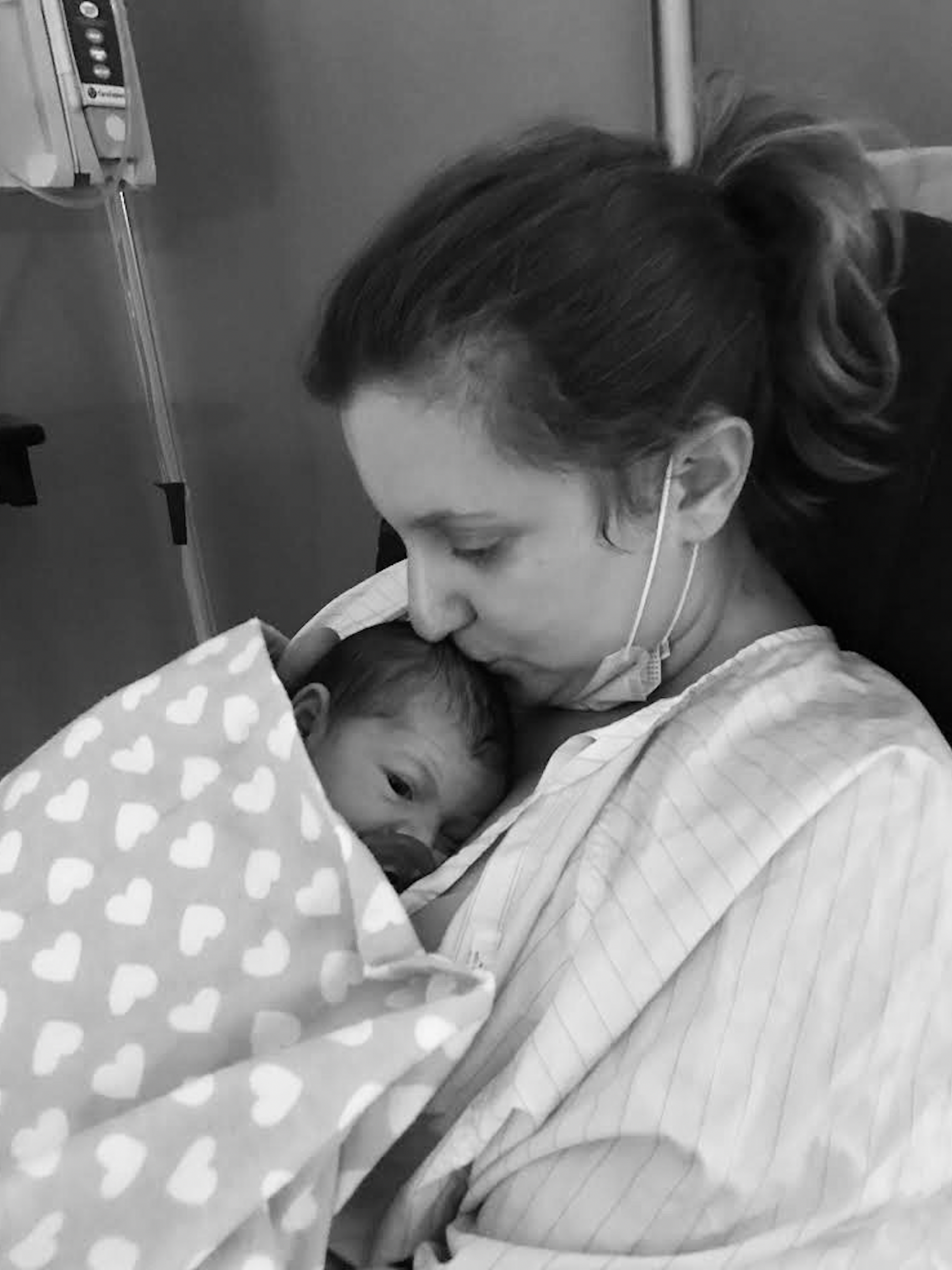
Four hours after she was born, I was wheeled into the NICU to finally meet her for the first time before she had to be transported to The Hospital for Sick Children in Toronto, which was luckily only 20 minutes away. My husband was too rattled to hold her, but I told myself that I needed to feel the weight of her in my arms in case it was my only chance.
When I looked into her eyes for the first time, I saw determination. Despite the tubes, she was alert, and listened to me while I spoke to her. After holding her for what seemed like forever, she was taken away by the most careful Emergency Response Team. The sight of a very methodical EMS with tattooed sleeves gently carrying off my newborn daughter somehow put me more at ease. They knew what they were doing. She was in good hands. As for me, I had to wait to be discharged until the next day, while my husband went home to get some much-needed sleep.
My first night as a mother was a bit of a nightmare. The blaring sirens that I had heard so often throughout my life, but never paid much attention to, were now carrying my newborn daughter away from me. I was alone in a hospital bed, being infused with iron. At one point, an alert for an unlocated person blared across the intercom, and I quickly took to the halls with my IV thinking that maybe there was a shooting in the hospital. Thankfully there wasn’t, but it showed how disoriented I was after everything that had happened.
Morning eventually came and I was finally able to get an update on how my daughter was doing. I burst into tears as the doctor told me that her prognosis was “hard to determine.” I still have those exact words written down in my notes. It was only when I took a call from the paediatrician who had originally saved her life at our birthing hospital that I started to feel better. He seemed to think that for a baby with suspected sepsis, she was responding quite well based on what I had told him.
Thankfully, his words proved to be a beacon of light. Every day we visited her, she seemed to improve by leaps and bounds. First her oxygen came off, then we were told that her brain had been mostly unaffected by her rough start. Soon, I was able to start nursing and interacting with her, and it felt like we were making up for lost time. My husband and I still had to be screened for COVID every time we entered the hospital, but we were grateful to be able to visit her together.
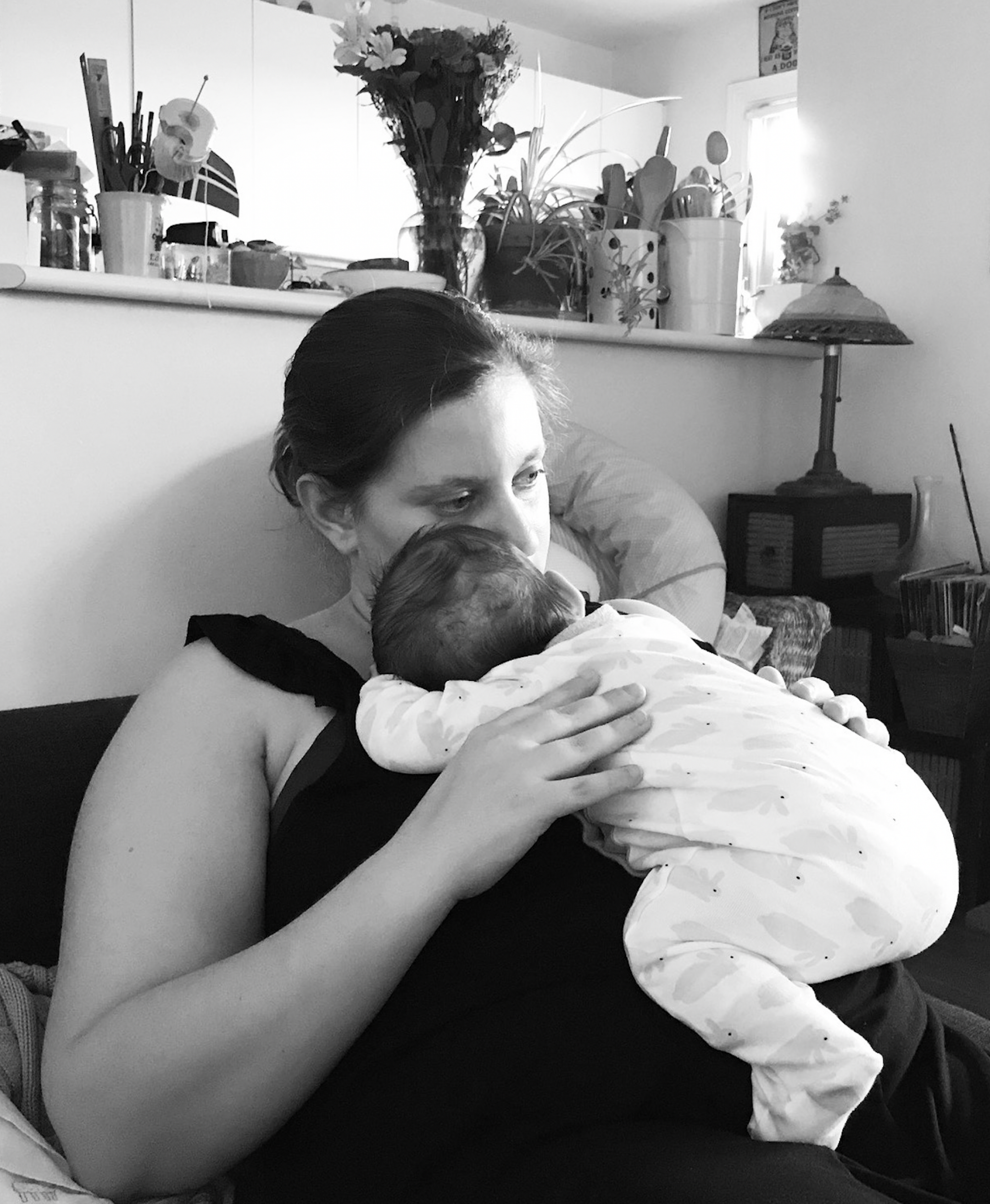
When you’re in a crisis, your brain often kicks into auto-pilot mode. This meant that my OCD was remarkably non-existent during those mad weeks of having a newborn in the NICU while in the middle of a pandemic. Our days were very structured between driving to the hospital and going home — the silver lining being that we were able to get sleep for those first two weeks.
When she was discharged, she was miraculously healthy, with the exception of unexplained hypertension that could be managed by medication. Unfortunately, once we brought her home, my anxiety began to flare up again. I imagine that most first-time parents feel that they are being thrown into the great unknown when they bring a baby home. What if you unintentionally hurt them while carrying them? What if they catch a cold that becomes a respiratory infection? What if they stop breathing when they sleep?
When you go through a traumatic birth and your little one has some medical issues, even if they appear to be perfectly healthy, the fear can become easily overwhelming. In those first weeks, I reverted to my compulsions, reciting the same hymn when I should have been trying to get a bit of sleep. However, because of my pre-existing mental health issues, I made sure to book more virtual therapy sessions and read up on the signs of postpartum depression and anxiety. Tons of friends and family checked in on us from a safe distance, sending us care packages, food, and messages of hope and compassion.
All of this support was a lifeline that should be offered to all mothers during their postpartum period as opposed to being a luxury that is out of reach for so many. While hospitals do send you home with some great mental health literature, the number of checkups after delivery become fewer and farther in between, and a lot of providers may miss signs that something is wrong.
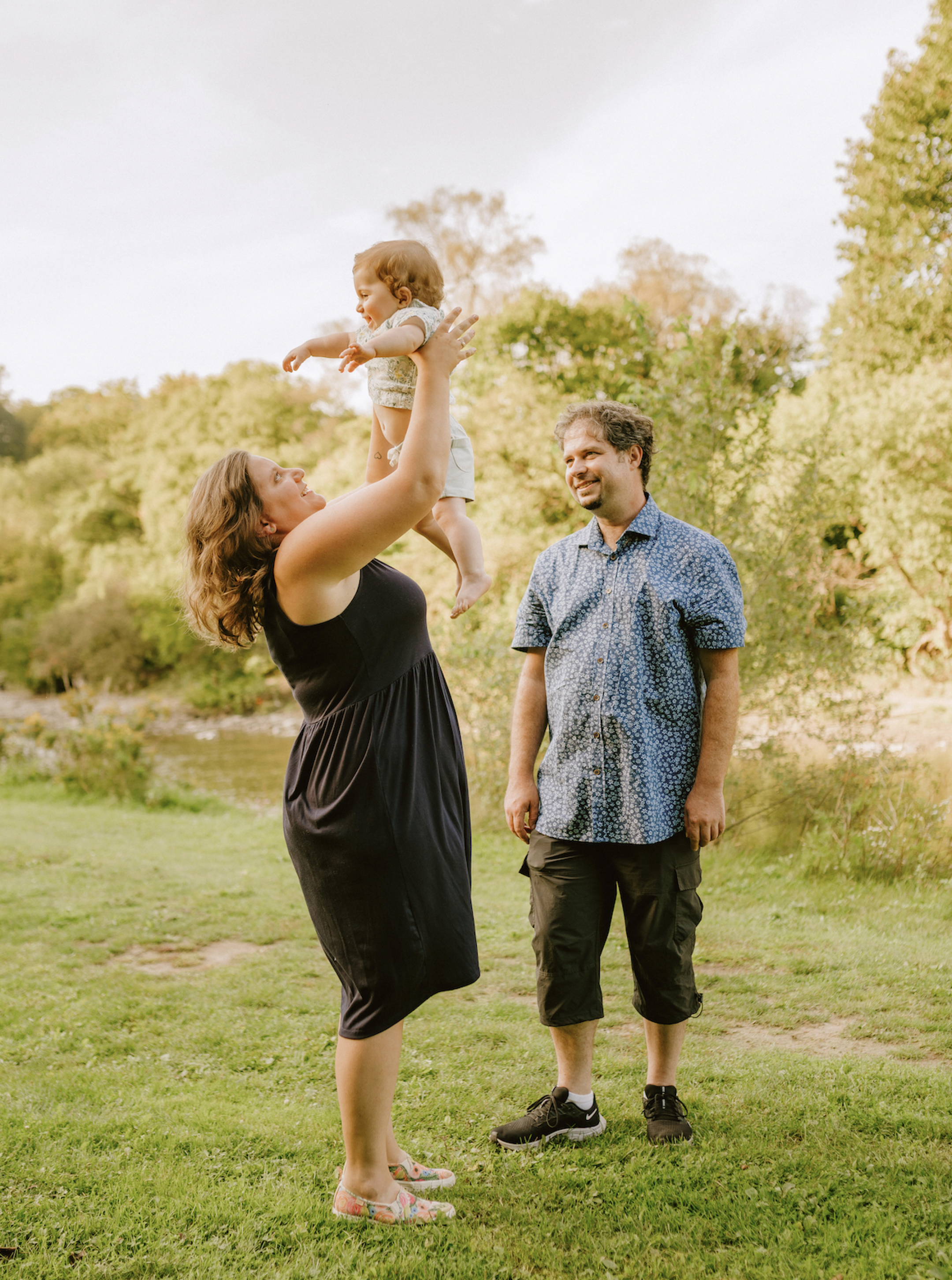
Photo credit: Becca Gilgan
With time, I started to recognize that my repetitive fears were a lie that my brain was trying to sell me. Sometimes I would say to myself out loud, “This is just an OCD thought!” to take the power away. Instead of fearing that I would compromise my daughter’s health if I so much as picked her up, I started to see her for the growing, babbling, energetic baby she is.
It’s been over a year since her birth, and the pandemic has continued to make it a very scary and precarious time to be pregnant, especially with the emergence of a new variant. My hope is that we start to prioritize not only pregnant women’s physical health but also their mental health, with access to everything they need to feel supported.
Had my daughter and I not received excellent care, I wouldn’t be where I am now, running my fingers through her messy toddler hair while trying to type with a free hand. I wouldn’t be able to hold her while I reflect on the fact that one day, when she’s older, I’ll get to tell her all about her wild entrance into this world. For now, all I whisper is, “We made it.”
Apoya nuestro trabajo
Nuestra misión es cambiar la manera en que el mundo percibe la salud mental.



















